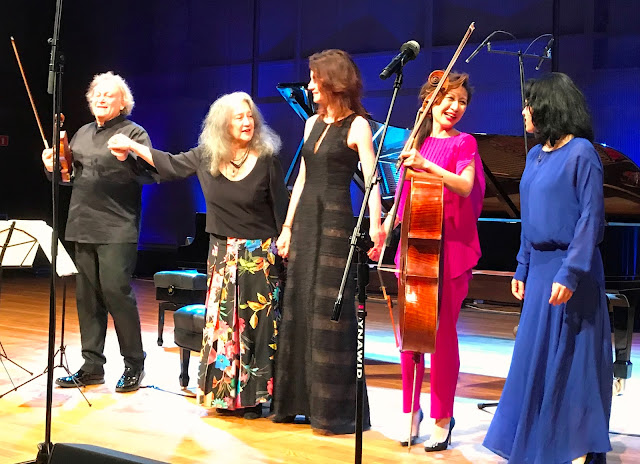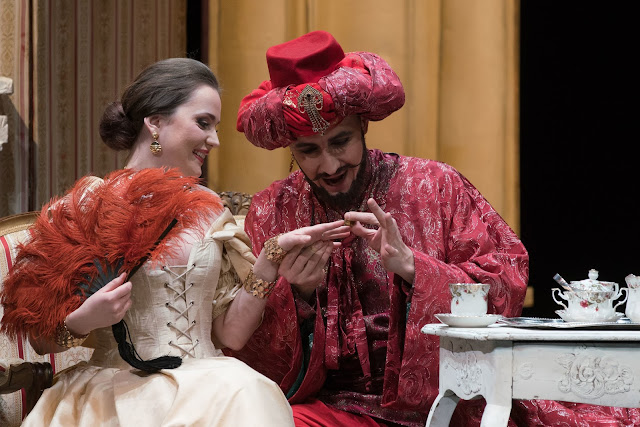Martha Argerich and Friends - POLIN Museum of the History of Polish Jews - Warsaw - 17th February 2018

Lt. to Rt. Michael Guttman, Martha Argerich, Annie Dutoit, Jing Zhao, Akane Sakai This desperately moving and emotionally committed concert was enough to impel the very stones to pity. As a demonstration of the healing power of music and an unflinching confrontation of historical memory, it was unsurpassed. The performances will remain in my mind as one of the more profound musical experiences of my life. Although short in duration and modest in scope, this inspiring first POLIN Music Festival entitled Roots'n'Fruits ran from 16-18 February in Warsaw at the Museum for Polish Jews. The festival is hopefully the bud of a beautiful flower of historical regeneration and reconciliation in Poland. The opening concert of the festival was dedicated to the great philanthropist Zygmunt Rolat who has always cultivated the deepest respect and understanding between cultures. This chamber concert opened with the Variations on ...

